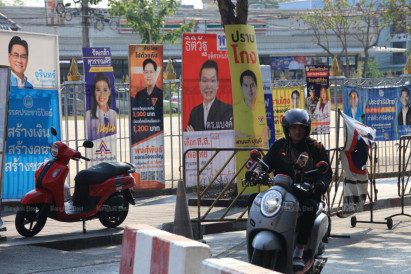
Several political parties have said they will implement a set of policies proposed by the civic sector during a forum on Thursday if they form a government after the next general election.
More than 100 civic organisations presented proposals at the forum organised by Thai PBS’s centre to communicate social agenda and public policy, known as “The Active”, with representatives of eight political parties attending.
One of the 12 proposed policies seeks to end hidden forms of violence in Thai society, such as sexual and domestic violence. One problem is that victims do not receive help promptly, and relevant agencies lack the coordination to help them, representatives of the civic sector said, adding that the victims also have to repeatedly recount their ordeal to several agencies.
They suggest that a system be set up to record information that can be linked and shared among agencies and campaigns be launched to promote a violence-free society while related laws be amended to address the issue as a national priority.
Pawitsarat Tiyapairat, leader of the Puea Chat Party, said the party is ready to push for such a policy to be implemented, adding that measures should be made to provide victims with safe temporary shelters so they can avoid violence.
Another proposed policy involves creating urban green spaces, allowing the public to use them for economic benefits, allowing communities to take part in the design of urban spaces, and reducing unused working space of state agencies and private companies.
Suchatvee Suwansawat of the Democrat Party supported the policy, saying that green spaces should not serve only for public recreation but they should serve other purposes.
Sqn Ldr Sita Divari, a prime minis- terial candidate of the Thai Sang Thai Party, agreed with the proposal, saying unused land should be used for public benefit.
Another policy is to promote private sector investment in producing local goods and services, while tax reduction measures should be taken to boost local economies.
Parit Wacharasindhu of the Move Forward Party supported the policy, saying it is important for the government to delegate power to local communities to determine their future. He also called for provincial governors to be elected rather than appointed as part of decentralisation efforts.

